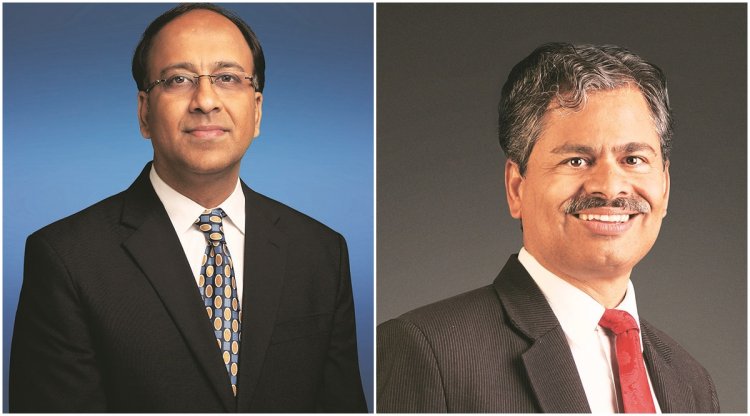Tech’s Budget Wish-list: Need of the hour: Mid- to long-term reforms
With new ways of working and new challenges in the Indian tech sector, the Union Budget should support sustained growth of the economy taking into account the immediate, medium, and long-term issues of the industry

By Srinath Srinivasan
With the tectonic shift that took place in 2020 due to the Covid-19 pandemic, the upcoming Union Budget is expected to provide more clarity on work from home and gig employee policies, taxation, energy innovation, manufacturing and semiconductor fab schemes, blockchain and much more.
“Galvanising R&D through key outcome focused collaborations, doubling down on manufacturing incentives, rethinking component import duties and encouraging the startup ecosystem will help position us well for the future,” says Anand Ramamoorthy, MD, Micron Technology (India). “The 2022 Budget has the unique opportunity to be a global launchpad for the Indian electronics and semiconductor sector.”
With a positive outlook on energy and infrastructure from the government, the tech industry expects actionable plans from the Budget. “India’s commitment to achieve net zero emissions by 2070 is ambitious and prudent. Along with solar, we need policy paradigms to promote wind power, hydro power, nuclear power, green grid corridors, to ultimately transition to round-the-clock hybrid power. Funding remains another critical need where government intervention would enable fast and smoother actualisation of renewable energy projects in the country. I am hopeful that the upcoming Budget will directly address these specific challenges,” says Mahesh Palashikar, president, GE South Asia.
Electric vehicles (EVs) are next in line in energy goals. “To keep up the consumer demand and to drive faster adoption of EVs, we are hopeful that the FAME II subsidy would continue well beyond 2023. While the startups form the majority of the EV ecosystem in India and have led the EV revolution from the front, a majority of them are ineligible for the PLI scheme,” says Tarun Mehta, co-founder & CEO, Ather Energy. “There is a need to be inclusive in this approach. EV manufacturers have highlighted concerns around GST inverted structure and have requested reducing taxes on input costs. Also, incentivising setting up EV charging stations in existing residential areas, housing complexes and commercial establishments will go a long way in setting up the infrastructure,” he adds.
When it comes to new ways of working in the digital economy, Nasscom expects the government to provide more clarity in defining remote work, employee and tax policies. In a memorandum shared by the IT industry forum, it has requested clarity on policies related to the place of providing the service, which may fall under Special Economic Zones (SEZ) even when a worker of the SEZ Unit has carried out the work remotely. Further, it has recommended expansion of SEZ Reserve to include expenses incurred on leasing of computers/ laptops, using cloud infrastructure, buying software and investment in building, infrastructure, workstation, interiors, furniture related cost while increasing the threshold of total emoluments for additional employees from 25,000 to50,000 per month to qualify for deduction under Section 80JJAA.
On the employee and investor tax fronts, Nasscom has recommended ESOP tax to be levied only at the time of sale of shares only and resident investors to be taxed on long term capital gain on sale of shares of DPIIT recognised startups at 10%, at par with non-resident investors while capping the tax rate on dividend from DPIIT recognised start-ups to 20% for resident shareholders and allowing other resident shareholders eligible for lower tax rate to pay tax at a lower rate than 20% as may be applicable to them.
Fintech/e-commerce sectors of the new economy which benefited with the demand surge after Covid-19 induced lockdowns want government measures to be aligned with the growth momentum. “Some initiatives that can support this momentum include allowing credit on UPI, mandating transparent publishing of reliability rates of various bank UPI and card processing systems, permitting tokenisation in offline payments, liberalising the tax regime for small merchants by a cut in GST for adopting digital payments and expanding the digital infrastructure of the country to include transactions in the absence of real-time connectivity,” says Rajeev Agrawal, CEO, Innoviti Payment Solutions.
The government’s recent blockchain strategy report and observations on digital currencies have raised expectations. The industry wants long-term concrete measures in the same space from the Budget. “Crypto technology and blockchain are long-term phenomena that are not going away. The Budget should include more resources to make our cities into more efficient smart cities. We can create models in infinite ways, from more robust policing to e-voting, to more efficient ways to provide public services leveraging blockchain,” says Pratik Gauri, co-founder & CEO, 5ire.







